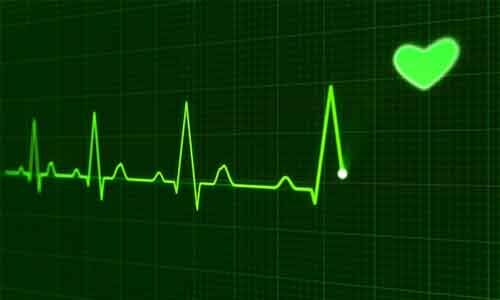- Home
- Medical news & Guidelines
- Anesthesiology
- Cardiology and CTVS
- Critical Care
- Dentistry
- Dermatology
- Diabetes and Endocrinology
- ENT
- Gastroenterology
- Medicine
- Nephrology
- Neurology
- Obstretics-Gynaecology
- Oncology
- Ophthalmology
- Orthopaedics
- Pediatrics-Neonatology
- Psychiatry
- Pulmonology
- Radiology
- Surgery
- Urology
- Laboratory Medicine
- Diet
- Nursing
- Paramedical
- Physiotherapy
- Health news
- Fact Check
- Bone Health Fact Check
- Brain Health Fact Check
- Cancer Related Fact Check
- Child Care Fact Check
- Dental and oral health fact check
- Diabetes and metabolic health fact check
- Diet and Nutrition Fact Check
- Eye and ENT Care Fact Check
- Fitness fact check
- Gut health fact check
- Heart health fact check
- Kidney health fact check
- Medical education fact check
- Men's health fact check
- Respiratory fact check
- Skin and hair care fact check
- Vaccine and Immunization fact check
- Women's health fact check
- AYUSH
- State News
- Andaman and Nicobar Islands
- Andhra Pradesh
- Arunachal Pradesh
- Assam
- Bihar
- Chandigarh
- Chattisgarh
- Dadra and Nagar Haveli
- Daman and Diu
- Delhi
- Goa
- Gujarat
- Haryana
- Himachal Pradesh
- Jammu & Kashmir
- Jharkhand
- Karnataka
- Kerala
- Ladakh
- Lakshadweep
- Madhya Pradesh
- Maharashtra
- Manipur
- Meghalaya
- Mizoram
- Nagaland
- Odisha
- Puducherry
- Punjab
- Rajasthan
- Sikkim
- Tamil Nadu
- Telangana
- Tripura
- Uttar Pradesh
- Uttrakhand
- West Bengal
- Medical Education
- Industry
Renal denervation effective for treatment of refractory ventricular arrhythmias

Australia: Renal denervation is an effective treatment for refractory ventricular arrhythmias (VA) or electrical storm (ES), suggests a recent study in the journal JACC: Clinical Electrophysiology.
Catheter ablation is effective for the treatment of structural heart disease ventricular tachycardia (VT) but still, there are some patients who have refractory VT despite multiple procedures. In this scenario, the doctors perform novel adjunctive therapies such as renal denervation. Joshua Hawson, Department of Cardiology, Royal Melbourne Hospital, Melbourne, Victoria, Australia, and colleagues performed a systematic review and meta-analysis of published data to determine whether renal denervation is effective in patients with refractory ventricular arrhythmias or electrical storm.
It included studies that evaluated patients undergoing RDN for VA or ES. Outcome measures of VA, sudden cardiac death, ES, or device therapy were required. It excluded case reports, editorials, and conference presentations.
The literature search helped in the identification of a total of 328 articles. Seven studies that met the eligibility criteria were included, with a total of 121 pooled patients. The weighted mean age was 63.8 ± 13.1 years, ejection fraction 30.5 ± 10.3%, 76% were men, 99% were on a beta-blocker, 79% were on amiodarone, 46% had previously undergone catheter ablation, and 8.3% had previously undergone cardiac sympathetic denervation.
Key findings of the study include:
- Meta-analysis demonstrated a significant effect of RDN in reducing implantable cardiac defibrillator therapies, with a standardized mean difference (SMD) of −3.11.
- RDN also reduced the number of VA episodes (SMD −2.13), antitachycardia pacing episodes (SMD −2.82), and shocks (SMD −2.82).
"Further randomized trials are warranted to confirm the efficacy of RDN for the treatment of refractory VAs and electrical storm," concluded the authors.
The study, "Renal Denervation for the Management of Refractory Ventricular Arrhythmias: A Systematic Review," is published in the journal JACC: Clinical Electrophysiology.
DOI: https://electrophysiology.onlinejacc.org/content/early/2020/09/26/j.jacep.2020.07.019
Dr Kamal Kant Kohli-MBBS, DTCD- a chest specialist with more than 30 years of practice and a flair for writing clinical articles, Dr Kamal Kant Kohli joined Medical Dialogues as a Chief Editor of Medical News. Besides writing articles, as an editor, he proofreads and verifies all the medical content published on Medical Dialogues including those coming from journals, studies,medical conferences,guidelines etc. Email: drkohli@medicaldialogues.in. Contact no. 011-43720751


